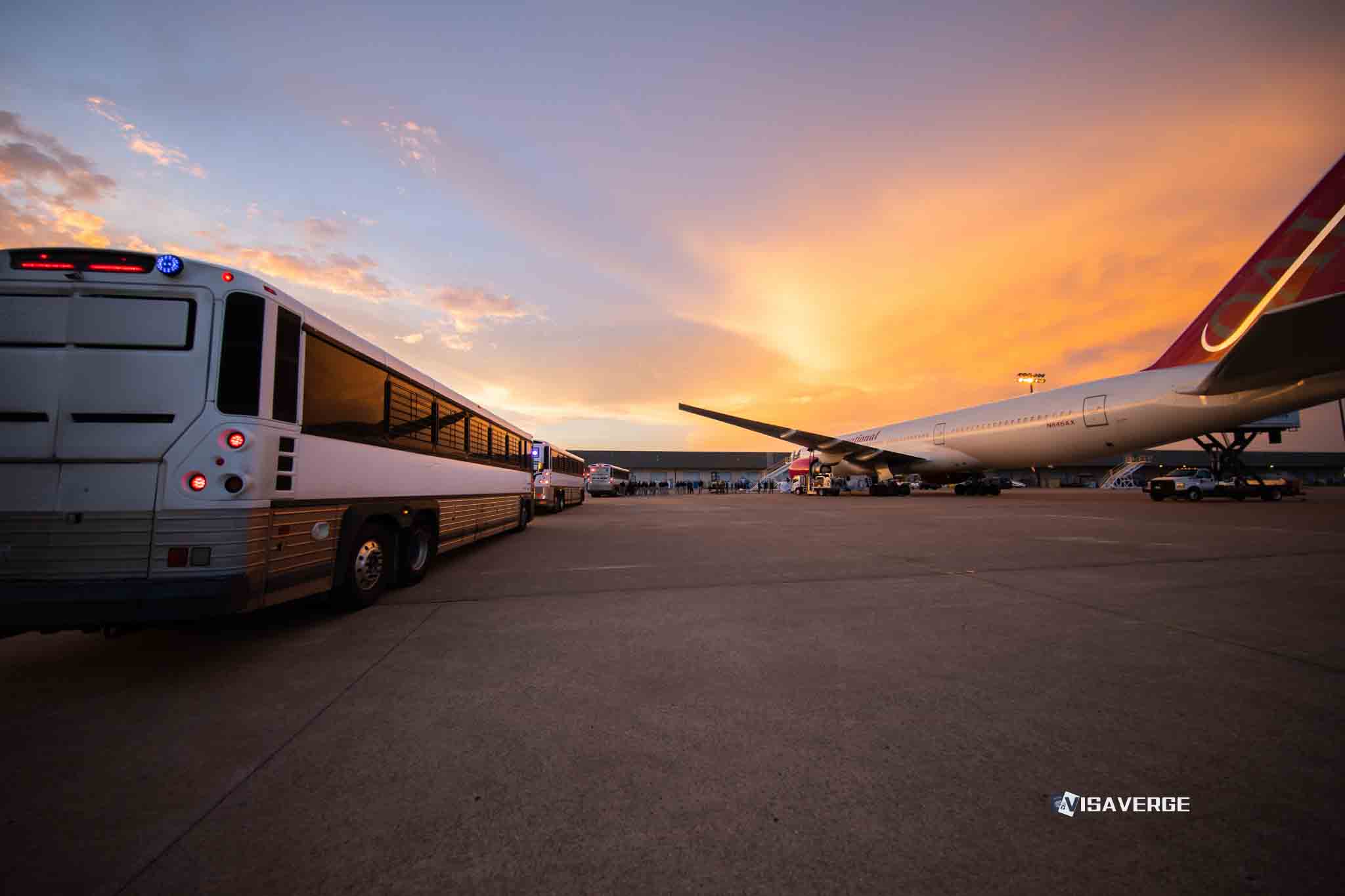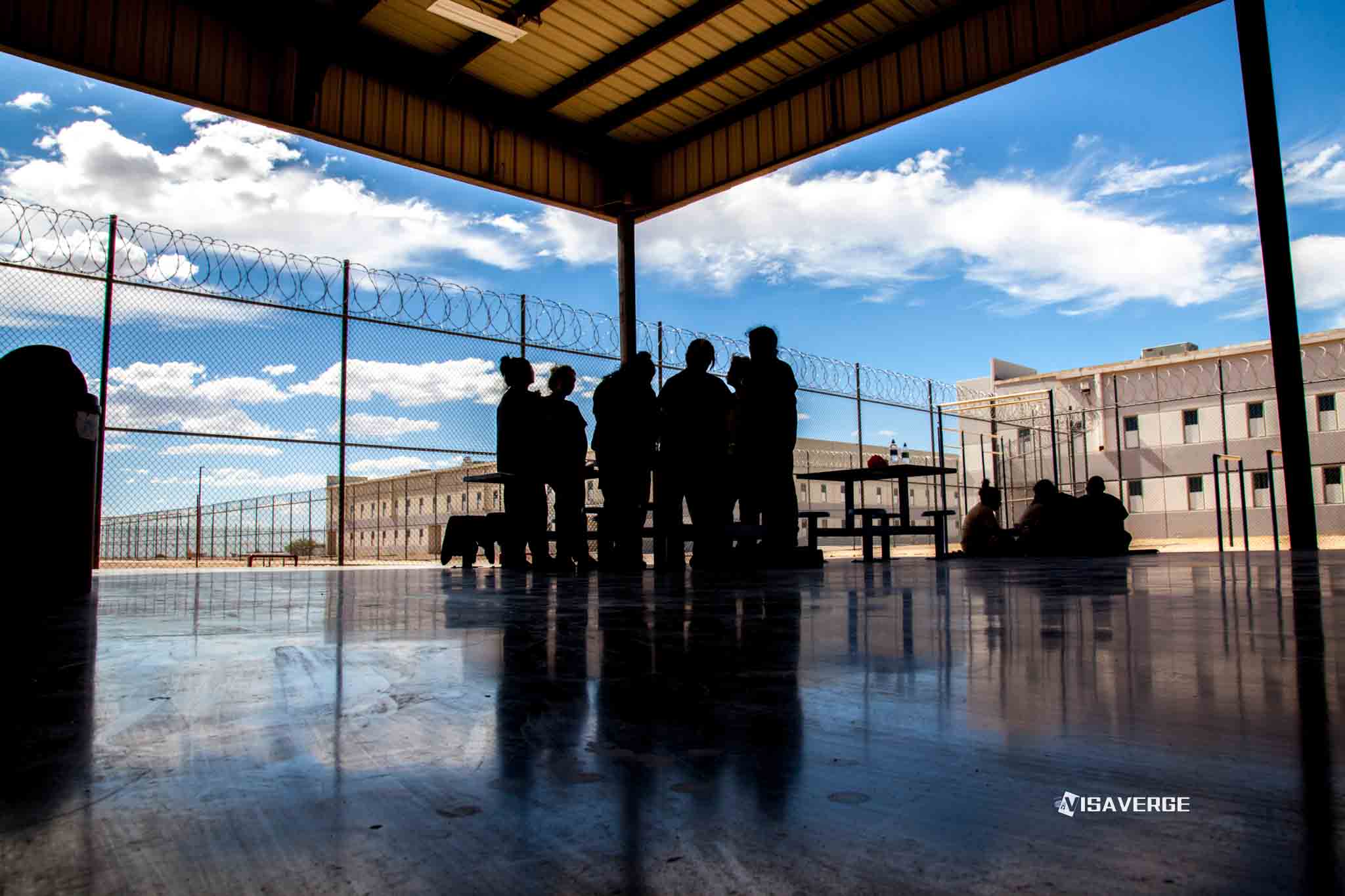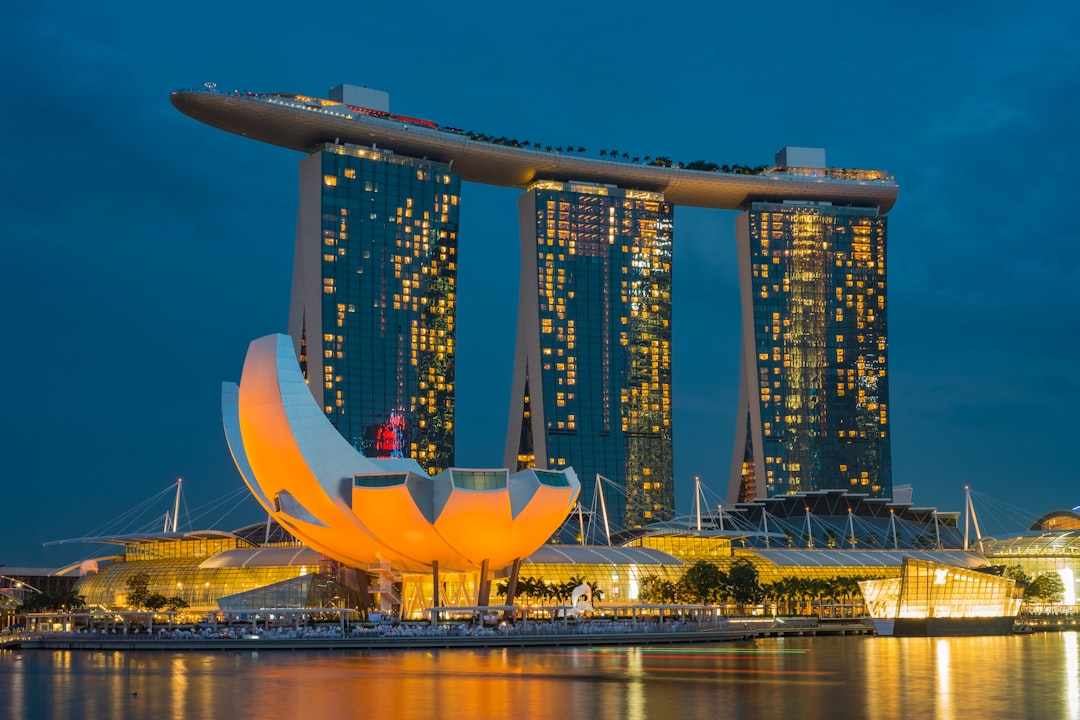Key Takeaways
• More than 14,000 migrants crossed the English Channel by June 1, 2025, a 32% increase from 2024.
• On May 31, 2025, 1,195 migrants arrived in the UK in one day, setting a new yearly record.
• Nearly 47% of boats now carry 60+ people, up from 2% in 2022, raising safety concerns.
A record-breaking surge in Channel Crossings has put the United Kingdom 🇬🇧 at the center of a growing immigration debate, as more migrants than ever before are arriving by small boats. On May 31, 2025, over 1,195 people reached UK shores in just one day, marking the highest single-day total so far this year. This dramatic increase follows a period of poor weather that had kept crossings low, with the Home Office pointing to calm seas and the use of fuller, more overcrowded boats as the main reasons behind the spike.
What’s Happening: The Latest Channel Crossings Surge

The English Channel, the narrow stretch of water between France and the United Kingdom 🇬🇧, has seen a sharp rise in migrant arrivals in 2025. According to official Home Office data, more than 14,000 migrants have crossed the Channel in small boats by June 1, 2025. This is a 32% increase compared to the same period in 2024. The trend shows no sign of slowing, with the summer months—traditionally the busiest time for crossings—still ahead.
The recent surge is not just about numbers. The way people are crossing is also changing. Smuggling networks are now packing more people onto each boat. In 2022, only 2% of boats carried 60 or more people. By April 2025, that number had jumped to 47%. This means nearly half of all boats are now dangerously overcrowded, raising serious safety concerns.
Why Are Channel Crossings Increasing?
The Home Office, which is responsible for immigration and border security, says there are two main reasons for the rise:
- Calm Weather: The number of “red days”—days with good weather for crossings—has more than doubled. From January to April 2025, there were 60 red days, compared to just 27 in the same period in 2024. On these days, the average number of arrivals is 190.
- Fuller Boats: Smuggling gangs are adapting to tougher enforcement by putting more people on each boat. This helps them make more money and reduces the number of trips, making it harder for authorities to intercept every vessel.
A Home Office spokesperson explained, “We all want to end dangerous small boat crossings, which threaten lives and undermine our border security. The people-smuggling gangs do not care if the vulnerable people they exploit live or die, as long as they pay and we will stop at nothing to dismantle their business models and bring them to justice.”
How Are Channel Crossings Detected and Managed?
The process begins with detection and interception. Both UK and French authorities use patrol boats, radar, and even drones to spot small boats leaving the French coast. Sometimes, French patrols escort the boats into UK waters, where the UK Border Force or the Royal National Lifeboat Institution (RNLI) intercepts them.
Once intercepted, migrants are taken to processing centers. Here, they undergo identification checks, health screenings, and an initial review of their asylum claims. Most arrivals claim asylum, which means they ask for protection under UK immigration law. If someone is found ineligible, they may face removal from the country.
The UK government is also targeting the criminal networks behind these crossings. Intelligence-led operations, increased data-sharing, and international cooperation are all part of the strategy to disrupt smuggling gangs.
Policy Changes: What’s Different in 2025?
The Labour government, which took office in late 2024, has made significant changes to the UK’s approach to Channel Crossings. One of the biggest shifts is the cancellation of the previous administration’s Rwanda deportation scheme. Instead of sending asylum seekers to Rwanda, the new government is focusing on:
- Dismantling Smuggling Networks: More resources are being put into enforcement, intelligence sharing, and working with other countries to catch and prosecute smugglers.
- Border Security, Asylum and Immigration Bill 2025: This new law, introduced in January 2025, gives law enforcement more power, creates a new Border Security Command, and improves data-sharing to fight organized immigration crime. The bill is still moving through Parliament but is expected to become law later this year.
- International Cooperation: The UK has signed new security agreements with countries like Iraq and Serbia and is working closely with Europol to target smuggling gangs that operate across borders.
You can find more details about the government’s approach and the latest statistics on Small boat arrivals: last 7 days – GOV.UK.
The Human Side: What Does This Mean for Migrants?
For migrants, the journey across the Channel is becoming even more dangerous. Overcrowded boats increase the risk of accidents, drowning, and other emergencies at sea. Many of those making the crossing are fleeing war, persecution, or poverty in their home countries. They often pay large sums to smugglers, only to be packed onto unsafe boats with little regard for their safety.
Humanitarian groups continue to warn about the dangers. They call for safer, legal routes for people seeking asylum and urge governments to work together to address the reasons why people are leaving their home countries in the first place.
The Impact on UK Authorities and Local Communities
The sharp rise in Channel Crossings puts extra pressure on UK authorities. The Border Force, RNLI, and law enforcement agencies must respond quickly to intercept boats and ensure the safety of those on board. Processing centers and local services, especially in coastal areas, are feeling the strain as they try to accommodate and support new arrivals.
The new Border Security Command is designed to help coordinate these efforts. By bringing together different agencies and improving information sharing, the government hopes to be more effective in stopping smuggling gangs and managing arrivals.
Smuggling Networks: Changing Tactics
Smuggling gangs are constantly adapting to new enforcement measures. As the UK and France increase patrols and surveillance, smugglers respond by:
- Using larger, more overcrowded boats to carry more people in a single trip
- Launching boats at different times of day or from new locations to avoid detection
- Charging higher fees for the crossing, making the journey even more profitable
According to analysis from VisaVerge.com, these changes show how difficult it is to stop Channel Crossings through enforcement alone. Smugglers are quick to find new ways to get around border controls, and as long as there is demand, the business will continue.
Weather: A Key Factor in Channel Crossings
Both government officials and independent experts agree that weather plays a big role in Channel Crossings. Calm seas and good visibility make it easier and safer for small boats to attempt the journey. In 2025, there have been more days with favorable weather, which helps explain the increase in arrivals.
However, even on days with poor weather, the number of crossings is rising. In 2025, the average number of arrivals on “low viability” days—when conditions are not ideal—has gone up by 30% compared to last year. This suggests that smugglers and migrants are becoming more desperate and willing to take greater risks.
Historical Context: How Did We Get Here?
Channel Crossings by small boats have been rising sharply since 2018. Over 160,000 people have made the journey in the past seven years. The reasons are complex and include:
- Ongoing conflicts and instability in countries like Syria, Afghanistan, and Sudan
- Tightened border controls elsewhere in Europe, making the Channel route more attractive
- The lack of safe and legal ways to claim asylum in the United Kingdom 🇬🇧
In 2022, there was a peak of about 46,000 arrivals, driven in part by a large number of people from Albania. In 2024, the total was around 36,800, a 25% increase from the year before. With over 14,000 arrivals already in 2025, this year could set a new record.
The Role of International Cooperation
Stopping Channel Crossings is not something the UK can do alone. Smuggling networks operate across many countries, and migrants often travel thousands of miles before reaching the French coast. That’s why the UK is working more closely with other countries and international organizations.
Recent agreements with Iraq and Serbia aim to disrupt smuggling routes before migrants reach the Channel. The UK is also sharing more intelligence with Europol, the European Union’s police agency, to track and arrest smugglers operating across borders.
The New Border Security, Asylum and Immigration Bill 2025
This bill is a key part of the government’s response. It includes:
- Expanded Powers for Law Enforcement: Police and border officials will have more authority to search, detain, and prosecute suspected smugglers.
- New Border Security Command: This agency will coordinate efforts across different parts of government and law enforcement.
- Better Data-Sharing: Improved systems for sharing information between the UK and other countries, making it easier to track smuggling networks.
The bill is still being debated in Parliament, but it is expected to become law later in 2025. Supporters say it will help the UK respond more quickly and effectively to the changing tactics of smugglers. Critics, including some humanitarian groups, worry that tougher enforcement alone will not solve the problem and could put migrants at greater risk.
What’s Next? The Outlook for Channel Crossings
With summer approaching, most experts expect Channel Crossings to remain high. Smuggling networks are likely to keep adapting, and the demand for crossings is not expected to fall. The government will continue to monitor the impact of its new policies and may adjust its approach based on what happens in the coming months.
Key points to watch include:
- The passage of the Border Security, Asylum and Immigration Bill 2025
- The effectiveness of new international agreements and intelligence-sharing
- Any changes in the number or tactics of Channel Crossings as enforcement increases
Practical Guidance for Stakeholders
If you are concerned about Channel Crossings—whether as a migrant, a local resident, or someone working in border security—here are some practical steps and resources:
- For Migrants: Be aware of the dangers of crossing the Channel in small boats. The journey is risky, and smugglers often put profit before safety. If you need information about asylum or immigration, contact the Home Office or visit their official website for guidance.
- For Local Communities: Stay informed about local developments and support services. Local councils and charities often provide help for new arrivals and affected residents.
- For Employers and Service Providers: Understand the pressures on local services and be prepared to respond to changing needs as arrivals continue.
For the most up-to-date information, check the Small boat activity in the English Channel – GOV.UK page, which provides daily and weekly updates on arrivals and official statements.
Conclusion: A Complex Challenge with No Easy Answers
The rise in Channel Crossings by small boats is a complex issue with no simple solution. Calm weather and fuller boats are making it easier for more people to reach the United Kingdom 🇬🇧, while smuggling networks continue to adapt to new enforcement measures. The government’s focus on dismantling these networks, passing new laws, and working with other countries is a major shift from previous policies.
However, as analysis from VisaVerge.com suggests, enforcement alone may not be enough. The underlying reasons why people risk their lives to cross the Channel—conflict, poverty, and a lack of safe legal routes—remain. As the situation develops, all eyes will be on how the UK balances border security with humanitarian concerns and international cooperation.
Actionable Takeaways:
– Stay informed through official Home Office updates and resources.
– Understand the risks and realities of Channel Crossings for all involved.
– Watch for new laws and international agreements that may affect future migration trends.
For official statistics, policy updates, and contact information, visit the Small boat arrivals: last 7 days – GOV.UK page or contact the Home Office directly.
Summary Table: Channel Crossings 2025 (to June 1)
| Metric | 2025 (to June 1) | 2024 (same period) | % Change |
|---|---|---|---|
| Migrants Arrived | 14,000+ | ~10,500 | +32% |
| Record Single-Day Arrivals | 1,195 (May 31) | N/A | N/A |
| “Red Days” (good weather) | 60 | 27 | +122% |
| Avg. Arrivals/“Red Day” | 190 | N/A | N/A |
| Boats with 60+ people | 47% | 2% (2022) | +2,250% |
For more information or to report concerns, contact the Home Office Migration Statistics team at [email protected] or the Home Office Newsdesk at 0300 123 3535.
Learn Today
Channel Crossings → Migrant journeys by small boats across the English Channel between France and the UK.
Home Office → UK government department responsible for immigration, border control, and security enforcement.
Smuggling Networks → Criminal groups that illegally transport migrants for profit across borders using risky methods.
Border Security Command → A new UK agency coordinating government efforts to combat immigration-related organized crime.
Asylum → Legal protection granted to migrants fleeing persecution in their home countries.
This Article in a Nutshell
In 2025, Channel Crossings surged due to calm seas and overcrowded boats, with over 14,000 migrants arriving by June. Authorities focus on dismantling smuggling gangs, enforcing new laws, and enhancing international cooperation to manage rising challenges amid increasing risks for migrants crossing the English Channel.
— By VisaVerge.com













